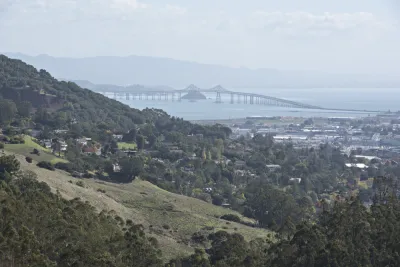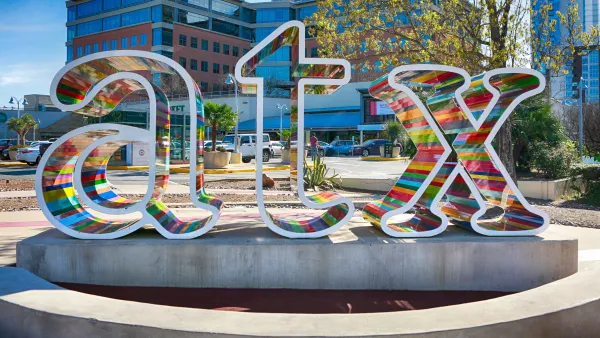Marin County, the wealthy county in the North Bay Area with a history of exclusionary land use and transportation practices, is using the shortage of water to justify blocking the development of an affordable housing project.

"Housing advocates and developers are warily watching California’s intensifying drought and what it may mean in a state that needs millions of new homes to house its residents," reports Emily C. Dooley.
According to Dooley, "the state’s twin issues of housing stock and water availability are colliding." New housing requires more water and puts stress on existing water supplies, which is especially true for the sprawling housing developments that have for decades been the most common form of new housing in the state. At a time when the state is empowering water regulators to divert water supplies, the state needs 120,000 new affordable homes every tear until 2030, according to an estimate by the California Housing Partnership.
Much of the article focuses on the potential consequences of the drought for affordable housing development in Marin County. According to Dooley, the Marin Municipal Water District is considering a moratorium on new water connections after stalling an affordable housing project in the name of water. The decision to stall the water permits for a 74-unit multifamily development approved by the county for low- and extremely low-income residents is also likely to set a precedent for a "healthy aging center" working its way through the permitting process.
Another city, Oakley, in Summit County, Utah, has also taken steps to block development out of concerns about the local water supply, but the Marin County example certainly sets the decision in a different development context. The article invokes the word NIMBY to describe the effect of the drought on housing politics in the state of California. "Housing is needed throughout the state. Where housing opponents usually cite traffic concerns, water concerns could become one more way to thwart development," according to Dooley.
The action by the Marin Municipal Water District to block the construction of affordable housing comes at the same time as governments around the state of California plan to meet the targets for planned housing development according to the mandates of the Regional Housing Needs Assessment process.
FULL STORY: Water and Housing Needs Collide in California’s Severe Drought

Analysis: Cybertruck Fatality Rate Far Exceeds That of Ford Pinto
The Tesla Cybertruck was recalled seven times last year.

National Parks Layoffs Will Cause Communities to Lose Billions
Thousands of essential park workers were laid off this week, just before the busy spring break season.

Retro-silient?: America’s First “Eco-burb,” The Woodlands Turns 50
A master-planned community north of Houston offers lessons on green infrastructure and resilient design, but falls short of its founder’s lofty affordability and walkability goals.

Test News Post 1
This is a summary

Analysis: Cybertruck Fatality Rate Far Exceeds That of Ford Pinto
The Tesla Cybertruck was recalled seven times last year.

Test News Headline 46
Test for the image on the front page.
Urban Design for Planners 1: Software Tools
This six-course series explores essential urban design concepts using open source software and equips planners with the tools they need to participate fully in the urban design process.
Planning for Universal Design
Learn the tools for implementing Universal Design in planning regulations.
EMC Planning Group, Inc.
Planetizen
Planetizen
Mpact (formerly Rail~Volution)
Great Falls Development Authority, Inc.
HUDs Office of Policy Development and Research
NYU Wagner Graduate School of Public Service




























